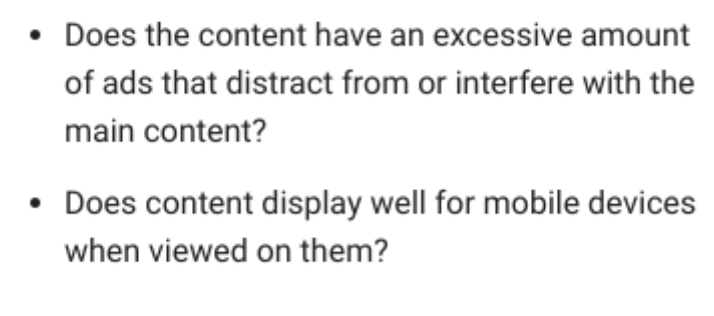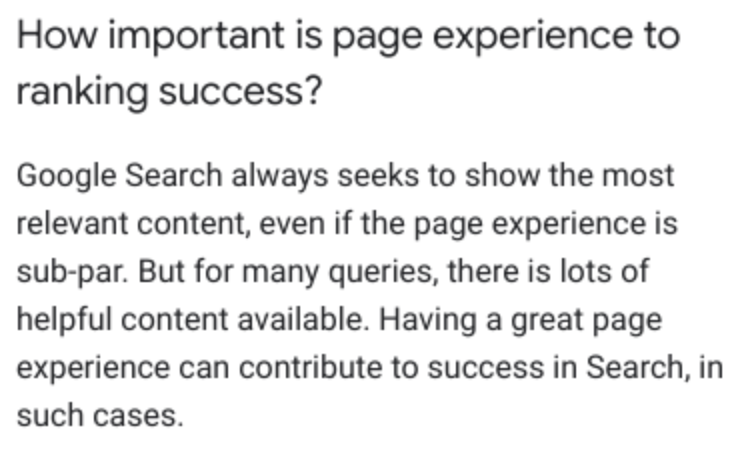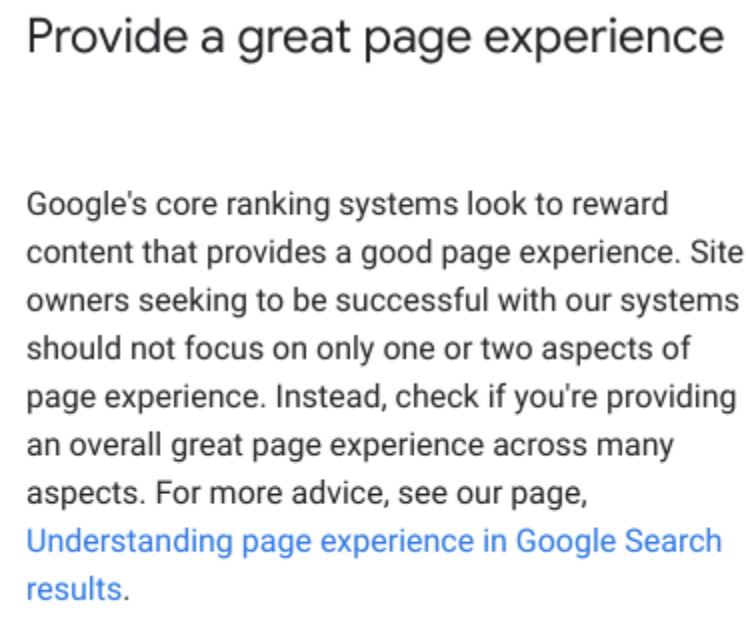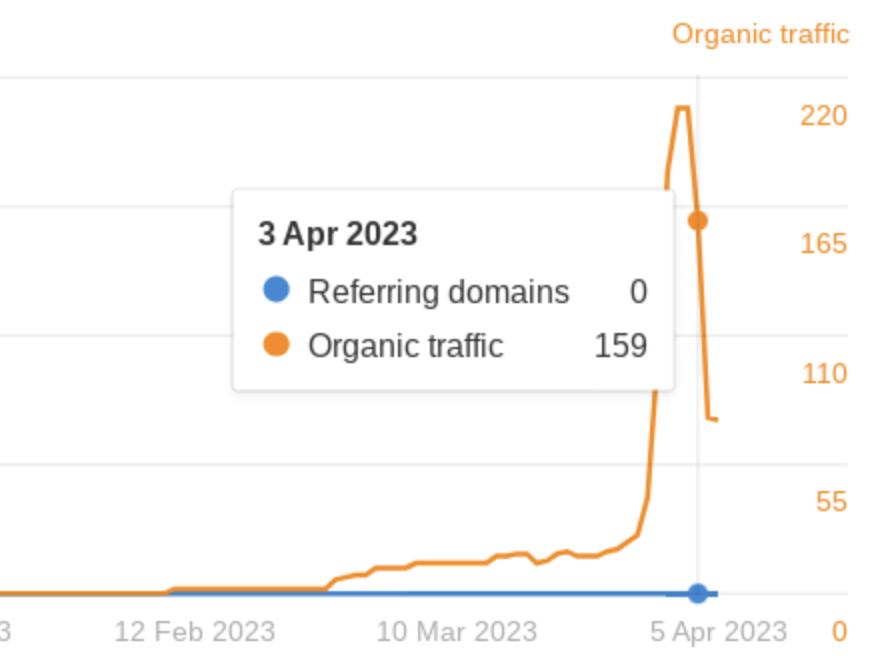If you have been paying attention to the world of SEO, you know that Google keeps us on our toes with its regular updates.
And guess what? May has been no exception.
As always, our goal here is to keep you informed and ready to adapt to Google’s constant evolution, ensuring your strategies remain effective, relevant, and robust.
Keeping up with Google’s changes is a must for anyone involved in the SEO world. It’s not just about staying current – it’s about understanding these updates, adjusting your strategies accordingly, and ensuring that your content continues to deliver value to your audience.
In May, we’ve seen a fair share of updates, with Google continuing its mission to improve user experience and prioritize quality content. From the aftermath of the April Reviews Update to the retirement of Page Experience Systems, there’s plenty to unpack.
So, let’s dive right in.
The April Reviews Update has concluded its rollout, and it’s left some noteworthy changes in its wake. Kicking off on April 12 at 9:08 PDT and concluding on April 25 at 11:24 PDT, this update has broadened the scope of Google’s review system.
Previously, Google primarily focused on product reviews. But now, all types of review content are under the microscope. We’ve noticed some fascinating shifts in rankings and CTRs as a result.
For instance, take this intriguing case where a site experienced a drop in clicks but a significant boost in CTR around the same time as the Reviews update.
Or consider Lily Ray’s observation, highlighting that sites producing subjective movie content have now surpassed giants like IMDB in the rankings.
Here’s an example of a site, within a specific service industry, heavily impacted by the Reviews update:

In a surprising development, Google announced the retirement of its Page Experience Systems. This move underscores Google’s ongoing commitment to streamline its services and prioritize user experience.
Google has removed documentation on individual systems used by their algorithms, including the page experience system, product reviews system, mobile-friendly ranking system, and page speed system.
However, this doesn’t mean that elements like page speed and core web vitals are irrelevant now. On the contrary, they are still important parts of Google’s assessment criteria.
In August 2022, Google introduced the helpful content system, which generates a site-wide signal to help filter out unhelpful sites.

Formerly, Google’s helpful content documentation asked:
Both of these questions were related to core web vitals.
Now, the documentation tells us this:

It asks us to consider new questions, including:
Google encourages site owners to achieve good Core Web Vitals, as it contributes to a great user experience and success in search rankings.
Having a page experience that doesn’t bombard users with ads and having a site that reads well on mobile are all things that users tend to like. Google wants to show users pages that are not only helpful but also the type of page users like to see.
Google says, “We highly recommend site owners achieve good Core Web Vitals for success with Search and to ensure a great user experience generally. However, great page experience involves more than Core Web Vitals.”
The article ends by saying this:

Google continues to hammer home the importance of Core Web Vitals and mobile-friendly content. Sites that load quickly, offer an excellent user experience, and are optimized for mobile devices are winning in the SERPs.
If you haven’t already, now is the time to prioritize improving your site’s Core Web Vitals and mobile performance.
Several people reported seeing wild ranking changes. Many niche sites and affiliate owners are reporting seeing big improvements.
Below you will see the traffic graphs from a couple of sites that I monitor. They were impacted by March Core Update, but are now seeing improvements:

I’ve also noticed many sites taking massive traffic hits as well. I looked in great detail at the site below:

The changes seen are not likely a reversal of the core update as many sites that were negatively impacted still are. I’ll keep my eye on this and report next week on any observations worth passing on.
Beyond Google’s constant tinkering, our SEO community has been as lively as ever, providing invaluable insights, sparking thought-provoking discussions, and sharing the latest updates.
Let’s spotlight a few key contributors who made waves in May.
Firstly, Shaun Anderson‘s insight into the pros and cons of Google extracting information from video content has sparked an important conversation on diversifying content formats. With Google’s ability to now understand and extract value from video, marketers need to consider how to make their video content more accessible and SEO-friendly.
Olaf Kopp stirred the community with his insightful piece on the transformation of keyword research in the wake of Google Bard’s ability to handle hyper-specific, long-tail queries. As we move further into an era of semantic search, understanding user intent and creating content that satisfies specific queries is becoming paramount.
Semrush, a leading online visibility management platform, shared an interesting study on the impact of E-A-T (Expertise, Authority, Trustworthiness) on search rankings. The study reaffirms Google’s emphasis on E-A-T and provides SEO professionals with valuable data to guide their strategies.
Finally, Cyrus Shepard‘s engaging discussion on the balance between SEO as a performance channel and SEO as a brand channel garnered substantial attention. With Google’s updates blurring the line between these two approaches, SEO professionals must consider how to integrate their efforts into a broader digital marketing strategy.
The world of SEO is no stranger to change, but the introduction of Google’s Bard has the potential to redefine the landscape.
Google Bard has been making headlines since its launch. To tell you the truth, the release of Bard was initially disappointing, but May saw some significant updates and expansions.
At the Google I/O 2023 event, Google unveiled the Search Generative Experience (SGE), a groundbreaking tool powered by Bard that promises to change how users interact with search results and how marketers optimize their content strategies.
The integration of Bard into the search engine results pages (SERPs) raises several questions for marketers.
The first major announcement is that Google expanded Bard’s availability to more countries, increasing its potential user base and marking a significant step in its global rollout.
This expansion means that more users can now enjoy the tool’s benefits, and SEO professionals will need to consider how this increased accessibility might affect global search trends.
Bard also received updates in language support and features. Google added several new languages to Bard’s repertoire, again broadening its user base and making it a more versatile tool. The new features, while not detailed, promise to enhance the user experience and further integrate Bard into Google’s suite of services.
Google has also begun integrating Bard into its apps and services, creating a more seamless user experience and encouraging users to engage with the tool more frequently. This development could have profound implications for how people interact with Google’s suite of services and how they conduct searches.
Google announced plans for further integration of Bard into web services, hinting at a future where Bard might provide a more interactive, conversational search experience across the web.
The rise of long-tail, hyper-specific queries means that understanding your customers’ needs and how they search for your products or services will be crucial. Google’s focus on E-A-T suggests that the quality of content will be a significant factor in how Bard selects sources.
While we don’t have all the answers yet, one thing is clear: SEO is changing.
As for the future of SEO with Bard, predictions vary, but most agree on a few key points. Diversifying content strategies, integrating SEO with other marketing channels, and focusing on content conversion rate optimization (CRO) will likely become more important. As we navigate this new landscape, staying informed, flexible, and ready to adapt will be key to SEO success.
As Google’s ranking algorithms continue to evolve, the importance of E-A-T (Expertise, Authority, Trustworthiness) in SEO cannot be overstated.
Google has made it clear that high-quality content that demonstrates E-A-T is favored in search rankings. But what does that mean for content creators and SEO professionals?
Patrick Stox‘s recent study offers some insights. By analyzing several high-ranking pages, Stox found that pages with a clear demonstration of expertise, authority, and trustworthiness consistently ranked higher. This finding underscores Google’s emphasis on E-A-T and suggests that SEO professionals need to pay close attention to these factors in their content creation and optimization strategies.
In light of these findings, the importance of creating high-quality, helpful content is more evident than ever. Gone are the days of keyword stuffing and spammy backlinks.
Now, the focus is on providing valuable information that helps users and demonstrates your expertise, authority, and trustworthiness in your field. This shift is a win-win situation – users get better content, and content creators who adhere to these guidelines are rewarded with better search rankings.
As the SEO landscape continues to evolve, several key topics are worthy of attention this month:
May has been a month filled with noteworthy updates in the world of SEO. From Google’s unveiling of Bard and its Search Generative Experience to the continued emphasis on E-A-T and quality content, the landscape continues to evolve.
Adapting to these changes, understanding the implications, and applying this knowledge to your SEO strategies are more crucial than ever. As we continue to navigate the increasingly complex world of SEO, we must remain committed to learning and adaptation.
Stay tuned for next month’s roundup of Google SEO news, where we’ll continue to delve into the latest updates, insights, and strategies to help you navigate the ever-evolving world of SEO. Feel free to contact me if you need help with your SEO projects.